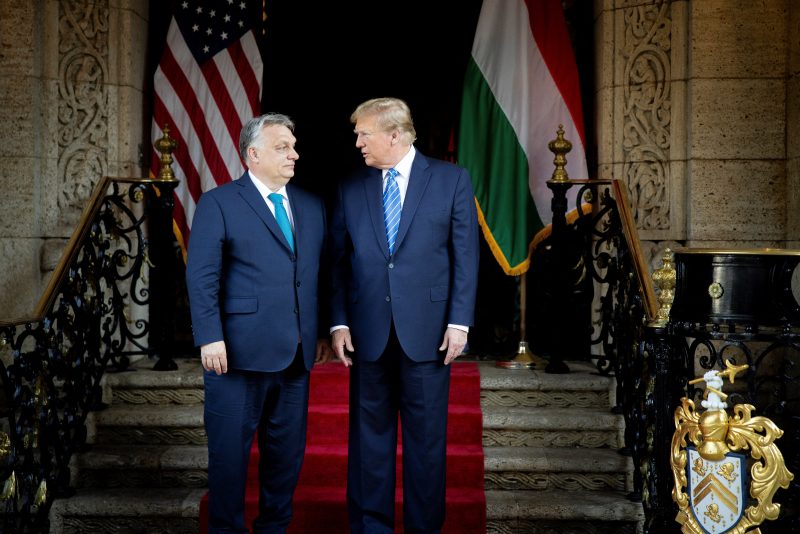In a recent meeting that garnered substantial attention on the global stage, former US President Donald Trump met with Hungarian Prime Minister Viktor Orban. The encounter between Trump and Orban, two controversial and unconventional political figures, has generated intense speculation and analysis from political observers worldwide. While their meeting may have seemed like a mere diplomatic exchange, the underlying implications and potential ramifications of their alliance have raised concerns and prompted discussions about democracy, geopolitics, and the future of international relations.
Viktor Orban, often labeled as an autocratic leader due to his government’s centralization of power and erosion of democratic institutions in Hungary, has been a divisive figure on the European political landscape. His nationalist and anti-immigrant rhetoric, coupled with policies that restrict press freedom and promote an illiberal democracy, have drawn criticism from the European Union and human rights advocates.
On the other hand, Donald Trump’s presidency in the United States was characterized by a similar brand of populism, nationalist sentiment, and a disregard for traditional norms of governance. His America First agenda and controversial policies, including a highly contentious approach to foreign relations, left a lasting impact on US politics and its standing in the international community.
The meeting between Trump and Orban represents a convergence of ideologies and strategies that challenge the conventional notions of diplomacy and democratic governance. By aligning themselves with each other, these two political leaders have sent a clear message that they are willing to defy the established norms of international relations and embrace a more transactional and power-centric approach to diplomacy.
One of the key issues that emerged from their meeting is the potential impact on the democratic institutions and values that underpin the Western liberal order. Both Orban and Trump have been criticized for their attacks on the media, judiciary, and civil society, raising concerns about the erosion of democratic norms and freedoms in their respective countries.
Furthermore, the alliance between the two leaders has implications for US foreign policy and its relationships with European allies. Orban’s close ties to Russia and his skepticism towards the European Union stand in contrast to the traditional alliances that the US has maintained with European partners. The meeting between Trump and Orban has the potential to disrupt the transatlantic relationship and strain the unity of Western democracies in the face of rising authoritarianism and geopolitical challenges.
As the world continues to grapple with the consequences of the Trump-Orban meeting, it serves as a stark reminder of the evolving dynamics of global politics and the shifting sands of power and influence. The coming together of these two controversial figures highlights the complex interplay between democracy, nationalism, and populism in an increasingly interconnected world. The implications of their alliance may reverberate far beyond the confines of a single meeting, shaping the future of international relations and the trajectory of democratic governance around the world.


























